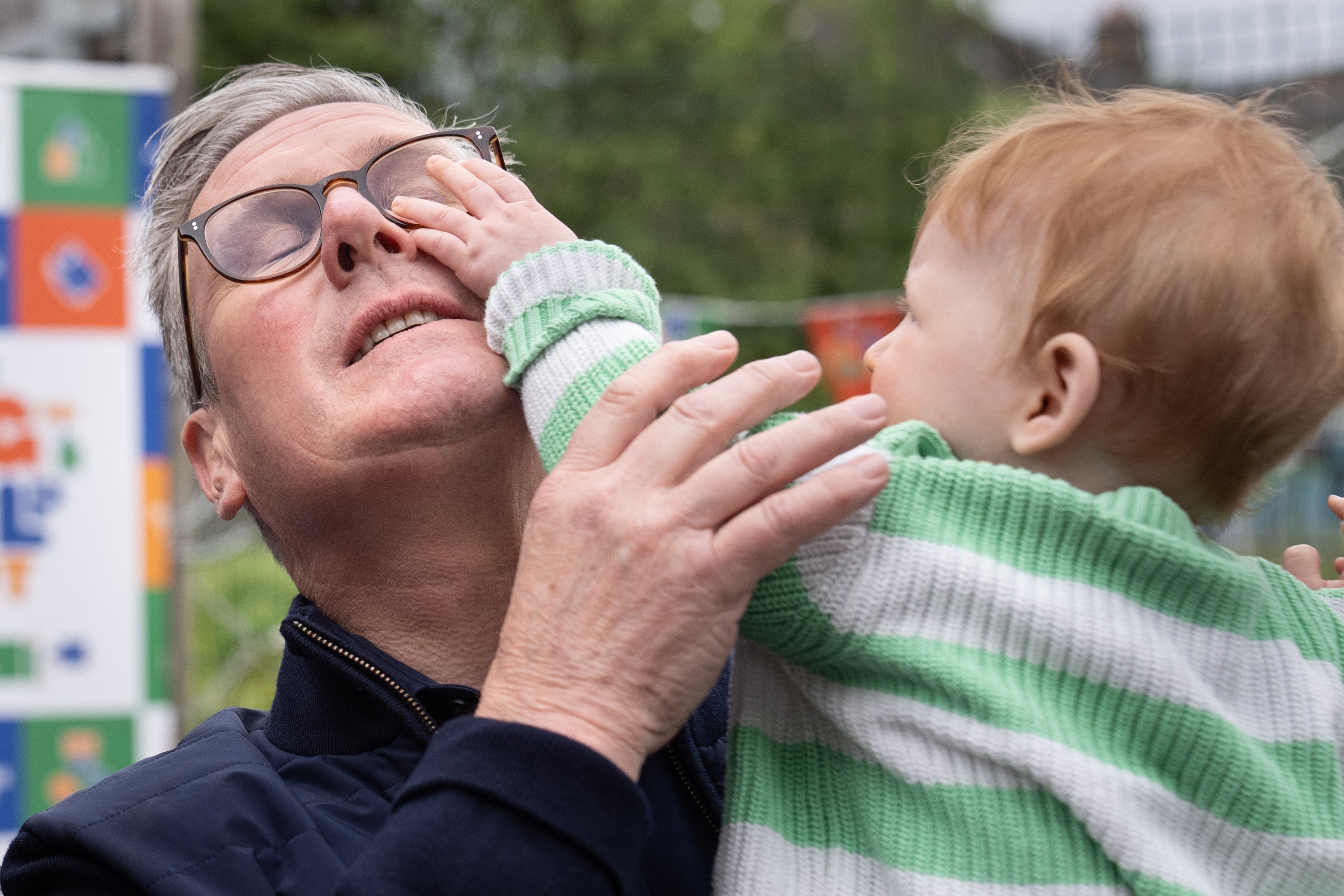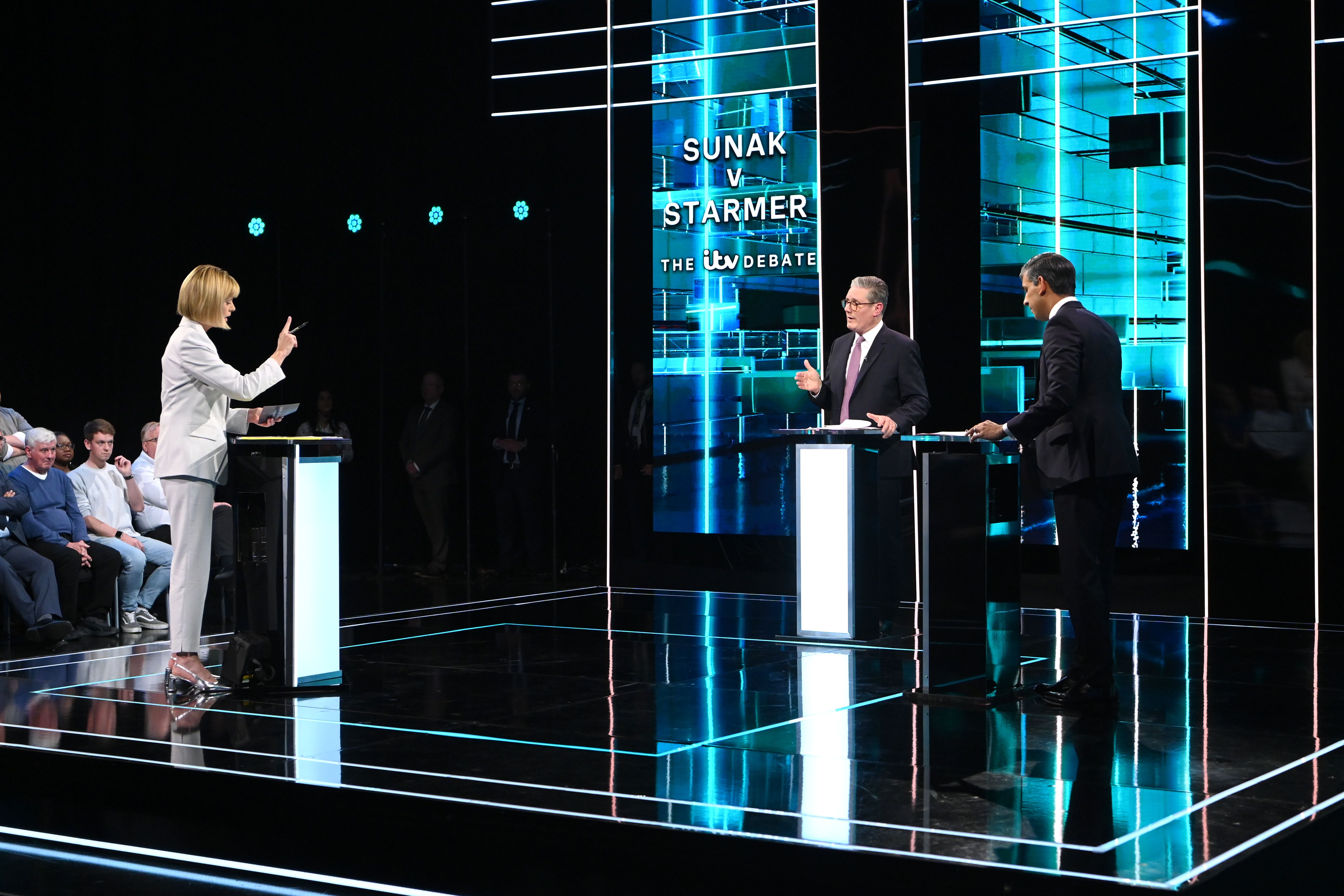Starmer struggles to secure support as poll predicts lowest voter turnout in modern history
A new poll suggests the Labour leader is struggling to capitalise on Tories anger with their own party following Sunday’s D-Day disaster and predicts the worst voter turnout in modern history. Starmer struggles to secure support as poll predicts lowest voter turnout in modern history
Britain is heading for the lowest general election turnout in modern history, pollsters have warned, with the main parties and their leaders leaving many voters “politically homeless”.
The warning of mass apathy follows Techne UK polling this week, which suggests that even in the middle of an election campaign with just a month until polling day, 20 percent of people have already decided not to vote.
The poll of 1,645 voting-age British people by Techne for Independent Media reveals that while the “won’t vote” percentage of the population is normally high in non-election periods, it is expected to drop significantly during the short campaign (the period between the dissolution of parliament and election day).
Apathy is high among young voters. They say their problems on issues such as housing have not been addressed by the major parties in the campaign. Among Generation Z and millennials, 38% have decided not to vote. That’s nearly double the national average.
Not even registered to vote
And according to Techne, 30 percent of 18-to-34-year-olds are not even registered to vote.
Leading pollster Robert Hayward made a note. He is also a Tory peer. Many people who say they will or may vote will not go to polling stations on July 4.

He believes this is because many conservative voters are angry with their party. Meanwhile, Keir Starmer has failed to convince people that he is the prime minister in waiting.
He said, “While 80 percent say they will or may vote, a lot of those people will not vote.” So the 20 percent figure for those who do not vote will be bigger.
I feel that we might have a record low turnout. It’s clear that many voters feel politically homeless.
Are you registered to vote in the general election?

“The key to this, though, is how many people asked would normally vote. If a high proportion of them would normally vote, then 20 percent is a very high figure.”
Of those who were polled, 1,111 (68 percent) voted in the last election. 534 (32 percent) did not vote or were too young to vote (534 (32 = 1,111 (68 + 2019)).

This means the poll had a higher proportion of voters of voting age in NUMThe national proportion of those who turned out to vote at the last election was 67 percent.Lord Hayward noted that this made the 20 percent “won’t vote” figure “more significant.”.
Polling mentor Professor Sir John Curtice agreed that polls overstate the number of people who will really vote.
He told The Independent: “What we can argue is that the conditions that facilitate a low turnout are in place.”
He went on: “Two conditions are in place that suggest a low turnout. The first is the large poll lead, so it looks as though it’s obvious what is going to happen. Second, there are only small differences between the two largest parties so it doesn’t matter much who wins anyway. In fact, none of the main party leaders are popular or charismatic. This explains why Farage can make waves.
Voters abstain because they don’t like any party

According to Techne UK, university-educated people are most likely not to vote, with a staggering 60 percent planning to stay away from polling stations.
That figure could be a rare boost for the Tories, with students much more likely to vote Labour than for them.
But among younger voters who have decided to vote, Labour leads the Tories by 54 percent to 14 percent.
The findings show that only a small number of people wouldn’t vote because they don’t like their local candidates (9 percent), suggesting that the national picture is having much more of an impact than is typical.
don’t like either party
Of retirees (over 64) who are most likely to abstain, 37 percent of those polled said it was because they don’t like either party.
Meanwhile, one in three people with lower education will not vote because they feel their vote doesn’t count.
Meanwhile, after rows over the party moving to the right, supporting Israel and ditching left-wing candidates, former Labour voters are most likely to abstain because they don’t like either party’s policies (54 per cent). Notably Unite, Britain’s biggest union, this week announced it would not endorse Labour’s manifesto.
Techne UK chief executive Michaela Morizzo issued a warning. Abstentionism would be so high that voter profiles for the main parties would change.
She said, “There is no question this election could present the lowest turnout, perhaps, in election history.”Voters who say they won’t vote, regardless of age, express a lack of trust in political parties and politicians. Their distrust is a significant barrier to participating in the electoral process.They expressed their inability to trust any political figure or party.
The trust issue is a significant factor in this election. The covenant between electors and their representatives may break down. If it does, a large number of people might stay home and not vote.
Over the next few weeks, it will be determined which party warrants a voter’s vote. This would not mean a positive scenario for the Conservatives. Time and polls will tell.”
How many people won’t vote?

The risk of a low turnout is very high
Ms. Morizzo added, “The risk of a low turnout is very high.” She continued: “This is due to abstentionism among those who previously voted Conservative and have lost confidence. This abstentionism could add to the traditional abstentionism, which primarily affects the most fragile social classes.”The polls have provided us with information about the Conservative voter. This identity is distinct from that of NUMEO.
Luke Tryl, from the campaigning organisation More, spoke in the Commons about the issue. He expressed concern that a widespread disbelief in political parties’ ability to solve problems in Britain exists. This disbelief contributes to voter cynicism and apathy.
“The time for mood change is a big question. Does it lead more people to go out and vote? Or does it result in apathy and cynicism, causing more people to decide not to vote?”
Britain’s challenges are seen as “broken,” and few believe the winner can fix them.
An Electoral Commission spokesperson said: “A general election is an important opportunity for people to express their views.” “Registering is the first step to reaching the ballot box.”It’s quick and simple to apply. With less than two weeks left until the deadline, time is of the essence.
Voters need to register by the midnight deadline on June 18. To participate in the voting process, registration must be completed by midnight on June 18.Those planning to vote at a polling station should also ensure they have an accepted form of ID to receive their ballot paper.Anyone who cannot vote at a polling station in Great Britain can apply for a postal vote by 5pm on June 19. Anyone who does not want to vote at a polling station can apply for a proxy vote by 5pm on June 26. This means someone else will vote on their behalf in the election. Complete these tasks and you’ll be ready to cast your vote on 4 July.”
Read more:
The Potential Benefits of Artificial Intelligence for Democracy

